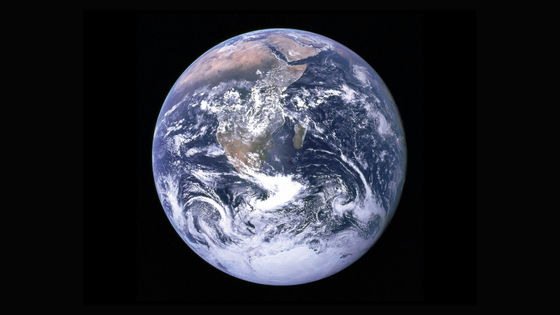A research team at Cambridge University succeeded in simulating backward time travel that changes the 'past' with a 25% probability

A research team at the University of Cambridge in the UK has succeeded in simulating a phenomenon in the world of quantum mechanics that allows events that happened in the past to change in the future with a 25% probability by using a phenomenon called '
Phys. Rev. Lett. 131, 150202 (2023) - Nonclassical Advantage in Metrology Established via Quantum Simulations of Hypothetical Closed Timelike Curves
https://journals.aps.org/prl/abstract/10.1103/PhysRevLett.131.150202

Scientists Successfully Simulate Backward Time Travel with a 25% Chance of Actually Changing the Past - The Debrief
In the field of quantum mechanics, 'quantum entanglement' refers to 'strong correlations that cannot occur in reality' that cannot be explained by classical mechanics due to the unique properties of quantum. In quantum entanglement, there are cases where we see behavior that is not considered common sense, such as not only ``the cause of an event leads to the final result'' as in the real world, but also ``the result of an event interferes with its cause.'' It is said that there is. The overseas media The Debrief explains about quantum entanglement, ``If a certain fundamental property of a quantum particle is shared by two or more particles, changing that property in one particle will result in a similar change in other particles. ``a phenomenon that occurs.''
This time, a research team led by Nicole Halpern of the University of Cambridge simulated the entanglement of two particles and examined the ambiguity inherent in quantum entanglement.
As a result of the research team's simulations, a quantum entangled circuit like the image below was formed. According to the research team, a quantum at the initial stage, T1, initially proceeds normally and toward the future. However, at a certain point 'T2' it suddenly begins to move towards the past, and then at 'T3' and 'T4' it moves towards the future again towards the time of T1. It is said that the quantum beyond the time of T1 will continue to move into the future.

Research team member David Shukl said, ``Using this circuit, our research team ran a simulation in which we could retroactively change actions that occurred in the past so that the final result would be the desired result.'' ” states. In the end, the research team succeeded in rewriting the past, changing past measurement results with observations made in the future, with a probability of about 25%. Therefore, the research team concludes that ``changing events that happened in the past in the future does not violate the laws of physics.''
Sukur explains this result using the example of gift-giving. Shukur says, ``If you want to give a gift to someone, but it will take three days for it to reach the recipient, you must always send it on the first day to ensure that it will arrive three days later. If you publish the list of things on the second day, you will not be able to change the gift even if it is not what the recipient really wants.However, if we use the mechanism of quantum entanglement like this, it is calculated that about 25% You will be able to change the contents of presents that have already been sent based on the probability.'

In addition, Mr. Sukuru said, ``Since the results obtained this time are only results obtained by simulation, by recreating the system, it can be used to further increase the probability of success in simulations related to time travel.''
On the other hand, the research team points out that this result is only a theoretical result, so time travel like science fiction works is difficult. Mr. Sukur said, ``Our research team is not developing a time machine, but digging deep into the fundamentals of quantum mechanics.It is difficult to actually change past events, as in this simulation. 'But by fixing the problems of the past now, we can imagine a better future.'
Related Posts:
in Science, Posted by log1r_ut







